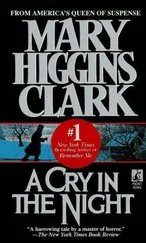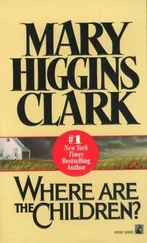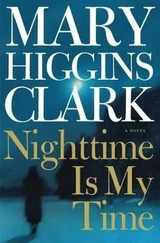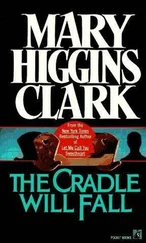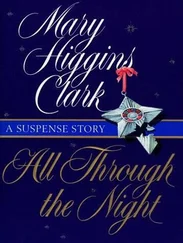As she poured tea and sliced a generous piece of cake for him, he decided that he would not hand over the picture immediately. He found himself savoring the warmth that emanated from Nan Rhodes. He knew she had a son. Always ask about the offspring, he told himself. “Nan, how is your son doing?”
Her eyes lit up. “I just got a new picture of him with his wife, Sharon, and the baby.” Nan rushed to get the picture, and when she returned and he had made the appropriate comments, they began to talk about her family. Then the normally reserved John Hartman found himself telling her about his experience of growing up as an only child and how as a kid he already knew that someday he would be a detective.
It was only after the second cup of tea and a small second slice of chocolate cake that he pulled the envelope with the photograph of Monica holding the Garcia baby from his pocket. “Nan,” he said soberly. “I’m a pretty good detective, and when I was working I would get a hunch about a case and many times I was on target. As I told you when I phoned, whoever was holding that picture has no known past history of crime. But that doesn’t mean that there isn’t something very wrong about the fact this picture exists and that Dr. Farrell’s two addresses are on it.”
“As I told you last week, that was my hunch, too, John,” Nan said. She reached for the envelope, took the picture out, studied it, then turned it over to read again the block printing with Monica’s addresses. “I have to show it to her,” she said reluctantly. “She might be annoyed that I didn’t give it to her last week, but that’s a chance I have to take.”
“I walked over to the hospital the other day,” John said. “I took some pictures from across the street to try to get the same angle of the steps and hospital that we see in this one. I think whoever took that picture was sitting in a car.”
“Do you mean someone might have been waiting for Dr. Monica to come out?” Now Nan’s voice was incredulous.
“It’s possible. Do you remember if anyone phoned last Monday to ask about her schedule?”
Nan frowned as she tried to sort out the myriad of calls that came into the office. “I’m not sure,” she said slowly. “But it isn’t unusual for someone like a pharmacist to phone and ask when the doctor is expected in. I wouldn’t even have noticed that as being unusual.”
“What would you have said if you had been called about her schedule last Monday?”
“I would have said that’s she’d be in around noon. There are often staff meetings at the hospital on Monday mornings and I don’t schedule anything at the office for her until one o’clock.”
“What time did she step out of the hospital with the Garcias to take that picture?”
“I don’t know.”
“When you give it to the doctor, please ask her what time it was.”
“All right.” Nan realized her throat was dry. “You really think that someone is stalking her, don’t you?”
“Maybe stalking is too strong a word. I checked on Scott Alterman, the ex-boyfriend, or whatever he was to the doctor. He’s a well-known, well-respected lawyer in Boston, recently divorced, and moved to Manhattan only last week to join a big-shot law firm on Wall Street. But he wasn’t the one who took the picture. Last Monday his firm had a farewell luncheon for him at the Ritz-Carlton in Boston and he was there.”
“Could he have had someone else take the picture for him?”
“He could have. But I doubt it. That doesn’t have the ring of truth to me.” Hartman pushed back his chair. “Nan, thanks for the hospitality. The cake was delicious and every time I have tea brewed in a teapot, I promise myself I’ll never use a tea bag again.”
Nan stood up with him. “I’ll be very aware of anyone phoning to try to get the doctor’s schedule,” she said, then brightened. “Oh, I have to tell you something interesting. The Garcia baby, the one who recovered from leukemia, was in today. Just a cold, but you can understand the concern of the parents. Tony Garcia, the father, works part-time as a driver. He told Dr. Monica that an elderly lady he drove last week claimed to know the doctor’s grandmother. Dr. Monica told me she thought it had to be a mistake, because she never knew her grandparents, but I couldn’t resist following up. I called Tony and he gave me the lady’s name. It’s Olivia Morrow, and she lives on Riverside Drive. I gave it to Dr. Monica and urged her to give the lady a call. As I told her, ‘What have you got to lose?’ ”

In his office near Shubert Alley, in the theatre district of Manhattan, Peter Gannon stood up from his desk and pushed aside the sheets of paper that were littered over it. He walked across the room to the wall of bookshelves and reached for his copy of Webster’s Encyclopedic Unabridged Dictionary. He wanted to look up the exact definition of the word “carnage.”
“carnage (kar’nij),” he read, “n. 1 the slaughter of a great number of men as in battle; butchery; massacre; 2 archaic, dead bodies as of men slain in battle.”
“That about defines it,” he said aloud, although he was alone in the room. Slaughter and butchery by the critics. Massacre by the audience. And dead bodies of all the actors, musicians, and crew who worked their hearts out to have a big hit.
He replaced the heavy dictionary, sat at his desk again, and put his head in his hands. I was so sure that this one would work, he thought. I was so sure of it I even promised to personally guarantee half the investment some of the big-bucks guys put in it. How am I supposed to do that now? The patent income has been finished for years, and the foundation is too heavily committed. I told Greg that I thought Clay and Doug were pushing too hard for those mental health and cardiac research grants, but he told me to mind my own business, that I was getting plenty for my theatre projects. How do I tell them that I need more now? A lot more!
Too restless to stay seated, he stood up again. The musical extravaganza had opened and closed last Monday night. A week later, he was still adding up the cost of the debacle. One critic had written, “Producer Peter Gannon has effectively presented small dramas, suitable for off-Broadway, but his third attempt at a musical is once again a resounding failure. Give it up, Peter.”
Give it up, Peter , he thought, as he opened the small refrigerator behind his desk and took out a bottle of vodka. Not too much, he cautioned himself, as he unscrewed the bottle and reached for a stem glass from the tray on top of the refrigerator. I know I’ve been drinking too much, I know it.
After he had poured a moderate amount of vodka into the glass and added ice cubes, he replaced the bottle, closed the refrigerator, and sat down again. Then he leaned back in his chair. Or maybe I should turn into a drunk, he thought. Blotto. Out of it. Not able to string two sentences together. Not able to think, but able to sleep, even if it’s a drunken sleep that ends in a blinding headache.
He took a long sip of the vodka and with his free hand reached for the phone. Susan, his ex-wife, had left a message telling him how sorry she was that the play had closed. Any other ex would have been thrilled that it flopped, he thought, but Sue meant it.
Sue. One more constant regret. Forget about calling her. It’s too painful.
As he was withdrawing his hand, the phone rang. When the caller’s number came up, he was tempted to pretend he wasn’t in his office. Knowing that would solve nothing, he picked up the receiver and mumbled a greeting.
“I expected to hear from you before this,” a querulous voice told him.
Читать дальше




